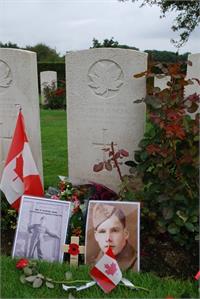August11 2012.

The commemoration of the 70th Anniversary of the Dieppe Raid takes place tomorrow at 3pm at the War Memorial Green in South Way, Newhaven. There will be a fly past by the Battle of Britain Memorial Flight at the start of the ceremony, which will be attended by representatives from veterans' organisations such as the Canadian Veterans Association of the UK and the Royal British Legion, as well as civic dignitaries. At least one surviving veteran of the Raid itself will be attending - William "Perky" Mellow, the British coxswain of an LCM (landing craft). Dignitaries will include the Lord Lieutenant, the High Sheriff, the Deputy Mayor of Dieppe and representatives from the Canadian High Commission and the US Embassy.
The ceremony will be preceded by a parade of standards from Denton Island. Wreaths will be laid during the ceremony at the Canadian memorial on the Green in memory of the 4,000 men who were killed, injured or take prisoner during the Raid which took place on 18th and 19th August 1942.
Everyone is welcome to attend.
THE DIEPPE RAID August 1942 saw Newhaven playing a major part in the ill-fated Dieppe Raid. At the time, the allies situation was grim. The Germans had penetrated deep into Russia.The British Eighth Army in North Africa had been forced back into Egypt. In Western Europe the allied forces faced the Germans across the English Channel.
Since the time was not yet ripe for mounting a full scale invasion, the allies decided to mount a major raid on Dieppe. Designed to foster German fears of an attack in the west and compel them to strengthen their channel defences at the expense of other areas of operation, the raid would also provide an opportunity to test new techniques and equipment, and be the means to gain experience and knowledge for planning the great amphibious assault.
Plans were drawn up for a large-scale raid to take place in July 1942. It was called Operation Rutter.
Canadians would supply the main assault force of 5000 troops. Having been virtually unemployed in England for two long years, they were bursting for action. The remainder of the force was made up of British Commandos and 50 American Rangers. Bad weather forced the cancellation of the raid and it was rescheduled to take place in August. This time it was to be called Operation Jubilee.
During the late evening hours of August 18th, an armada of over 230 ships and 3000 naval personnel transported the 6000 strong assault force. It was a warm moonless night as the ships left Newhaven, Shoreham, Portsmouth and Southampton and headed across the channel to Dieppe.
The plan called for attacks at five different points on a front of roughly ten miles. Four simultaneous flank attacks were to go in at dawn, followed half an hour later by the main attack on the town of Dieppe itself.
Within a few hours of the start of the assault, 4000 of the men were either killed, wounded or taken prisoner. The Canadians lost two thirds of their force, with 907 dead or later to die from their wounds. The operation was a tactical and human disaster.
There were few locations on the French coast that were less suited to an assault landing. The high cliffs lining the main landing beaches gave considerable protection to the defending troops, but presented huge obstacles to the allied invaders. The tanks were not equipped to cope with the conditions on the Dieppe beach or the vertical concrete sea defence wall in front of the town. The intelligence provided to the assaulting troops was very poor and the information on the German defences was hopelessly out of date.
Conflicting assessments of the raid continue to be presented. Some claim that it was a useless slaughter and ask " Was it really necessary to attack a heavily fortified port like Dieppe in broad daylight, to answer these questions?"
Others will say that out of it came improvements in techniques, fire support and tactics which reduced D.Day casualties to an unexpected minimum. Whatever the conclusion, there can be no doubt that valuable lessons were learnt, but a frightful price was paid during those early morning hours of August 19th 1942.